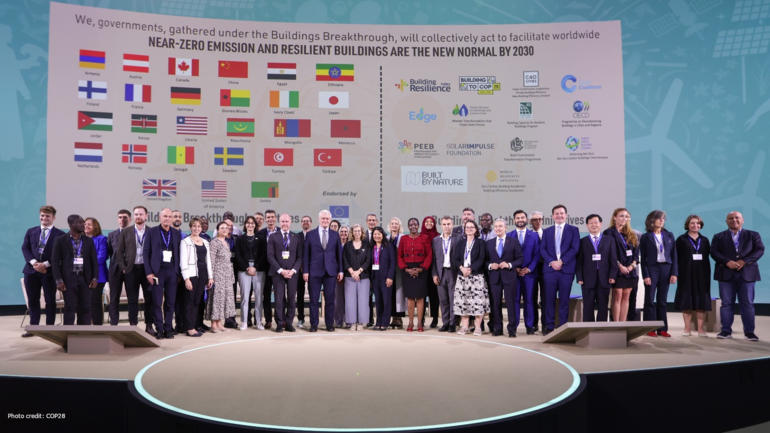Geneva, 28 November 2023 – Today, 19 leading member companies of the Forest Solutions Group (FSG), of the World Business Council for Sustainable Development (WBCSD), release the interactive ‘Catalogue of key decarbonization actions’, as part of Phase II of the Forest Sector Net-Zero Roadmap.
To drive progress on WBCSD’s Vision 2050 agenda, the catalogue supports forest companies in their transition towards a net-zero future by guiding them through the choice of high-impact actions to tackle carbon intensive stages (‘emissions hotpots’) along the full life cycle of three different types of forest products: Engineered wood products, paper-based consumer packaging, and cellulose-based textiles.
The ten actions to tackle emissions hotspots featured in this catalogue were selected based on an assessment of their level of maturity, emissions abatement potential, as well as their short-term economic feasibility. Deep dives into each of the ten actions aim to support forest companies in the implementation of these actions by sharing usage data, insights into the potential climate and business impacts, potential co-benefits and side effects, as well as practical implementation advice based on experience from FSG members.
This catalogue was developed by the members of the FSG, with McKinsey Sustainability as a knowledge partner, and in collaboration with WBCSD’s Climate team. It is part of Phase II of the Forest Sector Net-Zero Roadmap that offers a series of tools and guidance to support forest companies in the implementation of credible and science-based net-zero strategies. It builds on the foundations established as part of Phase I: ‘Enabling the transition to a net-zero economy’ released in 2021. The ten decarbonization actions are also featured on the Action Library of WBCSD’s Climate Drive, an open platform, powered by WBCSD, designed to support businesses and their suppliers in speaking up decarbonization efforts.
Francisco Ruiz-Tagle, Francisco Ruiz-Tagle, CEO, CMPC highlighted that: ‘The transition to a net-zero economy is well on its way across the forest sector. Companies are setting targets for net-zero by 2050 or sooner and striving to reduce emissions. They are also leveraging the carbon removals in their forests and forest products to accelerate the global transition.’
Stephen Binnie, CEO, Sappi Limited added that: ‘While all sectors share a responsibility to reduce emissions, specific technologies and approaches differ by industry. This catalogue will equip business leaders in the forest sector with valuable and actionable industry-specific guidance to address emissions hotspots and amplify carbon removals.’
Mark Rogers, CEO, New Forests highlighted that: ‘In addition to decarbonizing operations and value chains, the forest sector is also in a unique position to support the global net-zero transition through the provision of carbon removals from sustainable working forests and carbon storage in forest products. The catalogue also highlights these opportunities’
Project leaders: CMPC, New Forests, Sappi Group, Weyerhaeuser
Other members of the Forest Solutions Group: BTG Pactual Timberland Investment Group, Congolaise Industrielle des Bois (Olam Agri), Drax Group, Enviva, J.M. Huber Corporation, International Paper Company, Manulife Investment Management, Timberland and Agriculture, Mondi Group, Philip Morris International, SCG Packaging, Shell Agriculture & Forestry, Smurfit Kappa Group, Stora Enso, Sumitomo Forestry and The Navigator Company.
Knowledge partner: McKinsey Sustainability
Contributing stakeholder: National Council for Air and Stream Improvement (NCASI).








